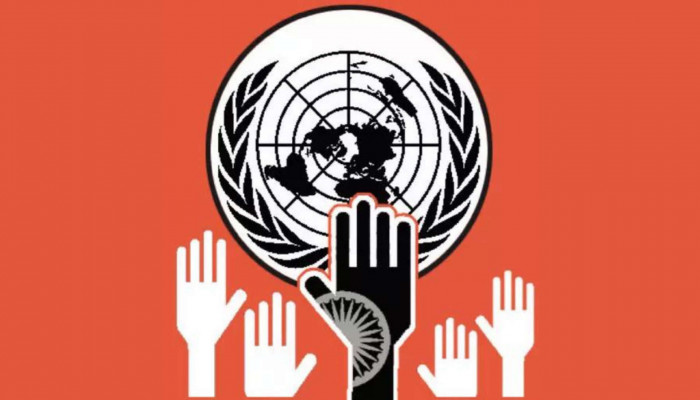India supports UN initiative to transfer global tax oversight from OECD
- In Reports
- 06:21 PM, Nov 24, 2023
- Myind Staff
India has aligned with 125 nations to support a resolution advocating for a 'UN tax convention,' a move set to reshape the global tax landscape. This development is hailed as historic by tax experts in India and international think tanks, as it signals a significant shift in decision-making authority. The resolution aims to transfer control from the Organization for Economic Cooperation and Development (OECD), where the majority of the 38 member countries are affluent, to a more equitable platform.
The UN General Assembly passed the resolution with a vote ratio of 125 in favor and 48 against. Notably, major OECD member countries including the US, UK, Netherlands, Switzerland, Japan, France, and Germany opposed the resolution. In support of the resolution, India, along with other BRIC nations - Brazil, Russia, and China - aligned themselves with the African nations that had proposed the resolution.
The resolution advocates for the establishment of an adhoc inter-governmental committee comprising no more than 20 member states, ensuring gender and regional balance. It distinguishes this committee from the OECD's Inclusive Forum, clarifying that while the Inclusive Forum involves both OECD and non-OECD members, it is not an inter-governmental body.
The initial action, to be taken within a year, involves reaching an agreement on the terms of reference. Subsequently, the second step entails the development of a UN Framework Convention on international tax cooperation.
The passing of the resolution has been positively received by the Tax Justice Network, a think-tank. The organization emphasized that unless the UN tax convention is adopted, the world is at risk of losing nearly $5 trillion to tax havens over the next decade.
Former vice president at the income-tax appellate tribunal, Pramod Kumar said, "In practical terms, what the new arrangement will achieve is a fair share of taxes to the source jurisdictions (where the customers are based) like India, as indeed to the developing world by developing global consensus on fair and equitable international tax rules. The international tax rules, as of now, are generally biased towards capital-exporting countries; the OECD perspectives and their commentaries, which have this inherent bias, will be much less relevant, in the new scheme of things."
The terms of reference for the UN tax convention could encompass a broad spectrum of issues, including aggressive tax avoidance, evasion, illicit financial flows, recovery of stolen assets, and digital economy taxation, considering the perspectives of source countries. Notably, the OECD-led forums have undertaken work on the 'Two-Pillar solution.' Pillar One addresses taxation in the digital economy, focusing on allocating profits of multinational enterprises (MNEs) to countries where the customer base is. Pillar Two proposes a global effective minimum tax rate.
Yet, certain countries, India among them, have raised reservations about the profit allocation methodology to source countries under Pillar One. Tax experts suggest that the UN Framework might offer developing countries an improved avenue for meaningful participation and influence.
Some countries, India among them, have voiced apprehensions about the profit allocation methodology to source countries under Pillar One. Tax experts assert that the UN Framework could enhance the influence of developing countries in shaping these decisions.
Image source: Hindustan Times







Comments